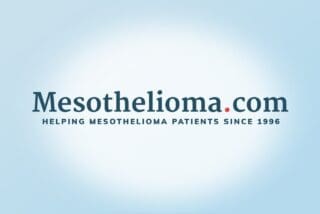This past Friday, September 25th, was the Mesothelioma Cancer Alliance’s first #MesoAwarenessDay tweet chat, when the mesothelioma community had an opportunity to share information about mesothelioma, a deadly and rare form of cancer caused by asbestos.
One of the best ways to increase awareness about any topic is to get people talking about it together. Sites like Symplur provide information so that medical professionals, patients, caregivers and advocates can find these opportunities to come together for a common cause.
In honor of Mesothelioma Awareness Day, we wanted to start a conversation about the myths surrounding mesothelioma, asbestos exposure, and the struggles many patients and their families and supporters encounter.
Some participants were Dr. Maurie Markman, President of Medicine and Science at the Cancer Treatment Centers of America, Linda Reinstein, President of ADAO, Heather Von St. James, 9 year mesothelioma survivor and advocate, the Asbestos Nation of the EWG Action Fund, and the Global Ban Asbestos Network.
Some topics discussed:
- Mesothelioma is not curable and is on the rise – 43,000 people around the world die from mesothelioma each year.
- Asbestos, the mineral that causes mesothelioma, is not banned in either the U.S. or Canada.
- Asbestos is still the leading cause of occupational cancer.
- Mesothelioma is a disease that does not just affect older men.
- Any exposure to asbestos is unsafe. Any removal of asbestos should be carried out by a licensed professional.
- The average life expectancy of those diagnosed with mesothelioma is 10 months.
The full transcript from the tweet chat can be found by searching #MesoAwarenessDay on Twitter. We would like to extend a huge thank you to all of our participants! With your support, we were able to bring awareness to this crucial issue.
The fight to end mesothelioma is still an ongoing issue that needs attention and awareness! One day is not enough: We must continue share our stories and start the conversation about asbestos and mesothelioma cancer.





